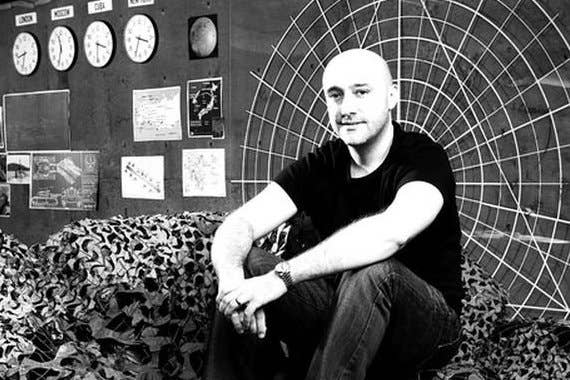US military can learn from game marketing, says ex-Call Of Duty director
Dave Anthony believes unpopular national security solutions can be pushed just like new game features
When it comes to introducing unpalatable ideas to the American public, the US government could learn a thing or two from the marketing strategies of AAA games.
That's what former Call of Duty director Dave Anthony told a think-tank forum in Washington this week. According to a report from Businessweek, Anthony's talk explored potentially controversial solutions to national security problems in America, and he had an intriguing take on how those solutions could be sold to the public.
"When we have a new product that has elements that we're not sure how people will respond to, what do we do as a corporation?" he asked, referring to his time as writer and game director on Call of Duty: Black Ops and Black Ops 2.
"We market it, and we market it as much as we can - so that whether people like it or not, we do all the things we can to essentially brainwash people into liking it before it actually comes out."
The forum was organised by the Atlantic Council, a think-tank where Anthony is a fellow in international security. He warned the crowd of the threat of "invasion" from within America's borders, most likely by an Islamic terrorist group, and illustrated the concept with a video that depicted, among other things, a US drone hacked by forces working from Iran and a massacre at a Las Vegas hotel.
"We do all the things we can to essentially brainwash people into liking it before it actually comes out"
Anthony's plea that policy-makers should learn from marketing and promotion in creative industries was linked to what he saw as a potential solution to the issue: stationing undercover US soldiers in schools, much like air marshalls on aeroplanes.
"The public won't like it, they'll think it's a police state," he said, then added, "All of these are solvable problems."
"I look at the US military and government, ironically, as having some of the very same problems as what the Call of Duty franchise has," Anthony continued. "We are both on top of our game. We are both the best in the world at what we do. We both have enemies who are trying to take us down at any possible opportunity. But the difference is, we know how to react to that."
The hugely successful Call of Duty franchise has strong ties to the real-world US military. That includes significant charitable donations, but also more divisive relationships, like working with Oliver North on Black Ops 2, a former lieutenant colonel in the Marine Corps. whose military career was tarnished by the Iran Contra scandal. North appeared as a character in the game, but he was also involved in its marketing, as a talking head in a documentary about the future of warfare.
Indeed, those decisions have come back to haunt Activision recently, in the form of a lawsuit brought by Manuel Noriega, the disgraced Panamanian dictator who also appeared as a character in Black Ops 2. Noriega has asserted that his depiction in the game is unflattering and unauthorised. Activision has dismissed Noriega's claims as, "absurd."

